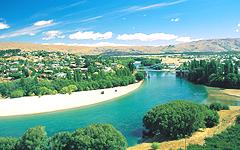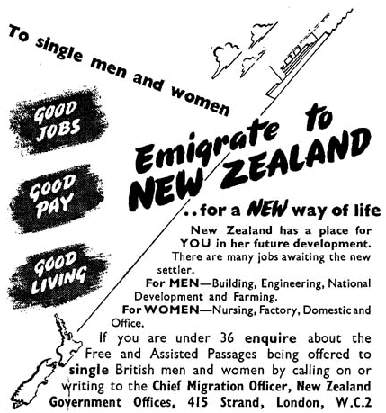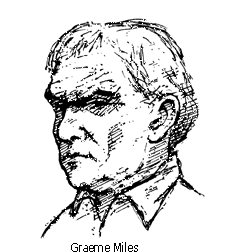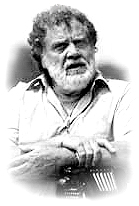 Many
folksongs they sing about Otago have phrases like these;
Many
folksongs they sing about Otago have phrases like these;
"Oh but it's hard, cruel and cold, searching Otago for nuggets of
gold..."
"I'm weary of Otago, I'm weary of the cold..."
"I've hunted Otago for gold, in the wind and the rain and the
cold..."
But for
those left behind during the 1960s jobrush, Otago would have been a
Shangri La, an El Dorado, a Paradiso. Tens of thousands of their
friends had fled the bleak tenaments of postwar northern Britain for
Australia and New Zealand and had written back to them about their
new homelands, uncouth and isolated, but warm and prosperous.
And Central Otago with its sheltered mountain valleys is very hot in
summer, and sunny all year round. Hundreds of postwar British
emigrants found jobs there building hydro-electric dams, servicing
tourist hotels and working in orchards. Or they found service jobs
like that of rural postman and folkie Martin Curtis, of Cardrona.

 Graeme
Miles
Graeme
Miles
 Danny
Spooner
Danny
Spooner